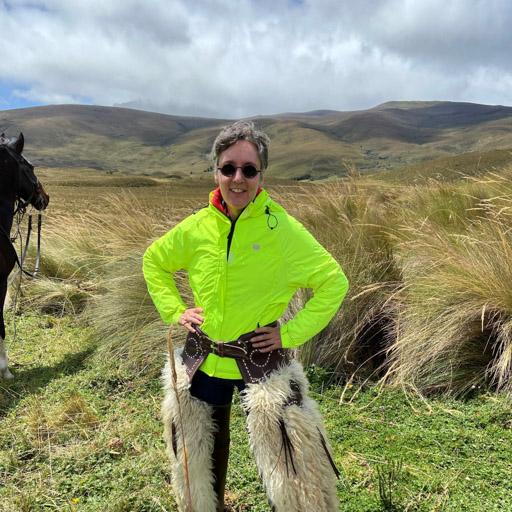Nora Jaffary
Associate Professor
Department: History
Faculty: Arts and Science

| Phone: | (514) 848-2424 ext. 2432 | |
| Email: | nora.jaffary@concordia.ca |
Expertise:
Mexican History -- especially colonial era, history of gender, religion in the colonial period; child-birth and birth control., mexico inquisition crime infanticide abortion
Language(s) spoken:
English, French (able to conduct interviews in French), Spanish
Professional associations:
PhD
Dr. Jaffary is a Latin Americanist whose research focuses on social and gender history in colonial and nineteenth-century Mexico. Her book, Reproduction and Its Discontents in Mexico: Childbirth and Contraception from 1750 to 1905 (UNC-Chapel Hill, 2016) examining midwifery, monstrous births, infanticide, abortion and the emergence of Mexican obstetrics, won the Canadian Historical Association's Wallace K. Ferguson Prize in 2017, and Honorable Mention for the Latin American Studies Association's Howard F. Cline Book Prize in Mexican History in 2018. Her new Abortion in Mexico: A History was published in 2024 with Spanish (Tirant lo Blanch) and English (University of Nebraska Press).
Dr. Jaffary received her Ph.D. in Latin American History from Columbia University in 2000. She has published a monograph on the Mexican inquisition’s investigation of popular religious practices, False Mystics: Deviant Orthodoxy in Colonial Mexico, a volume of essays treating the comparative colonization of the Americas, Gender, Race, and Religion in the Colonization of the Americas, and two collections of primary sources in translation aimed at introducing students to Mexican history and to women's history: Women in Colonial Latin America: Texts and Contexts, 1526-1806, co-edited with Jane E. Mangan and Mexican History: A Primary Source Reader, co-edited with Edward W. Osowski and Susie S. Porter.
Dr. Jaffary regularly teaches classes on the colonial and modern history of Latin America including "Latin America Via the Novel," and "Mexican, Cuban, and US Relations."
Dr. Jaffary is interested in working with graduate students on issues involving Mexico’s social and cultural history in the colonial and modern eras, or more broadly on gender, medicine, race, crime, deviancy, and religion in colonial and nineteenth-century Latin America.
She has previously served as both Graduate Program Director, Department Chair, and as the Academic Code Administrator for the Faculty of Arts and Science.